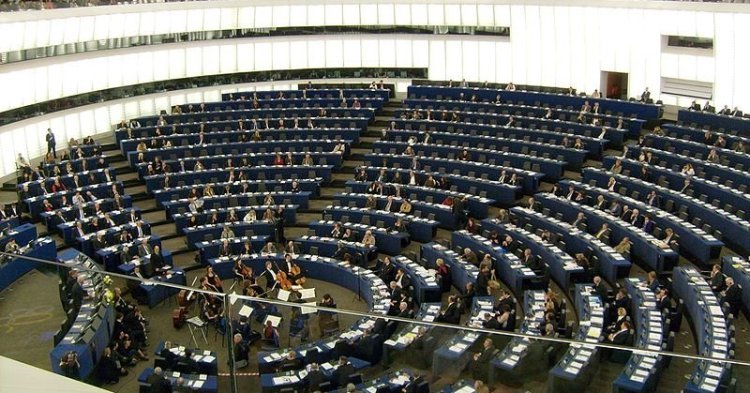An influential paper on the creation of a consultative UN Parliamentary Assembly(UNPA) argued in 1993 that if the UN is to be strengthened, “it must also be democratised through more direct representation of citizens.” The European Parliament took up the proposal and reinforced its support on several occasions. In June 2005, it stated [1] that a UNPA from the outset “should be vested with genuine rights of information, participation and control“. Over seventy European legislators endorsed the international Campaign for the Establishment of a UNPA that was launched in April 2007. It thus caused dismay [2] when the Parliament recently took a backwards step.What had happened?
On the occasion of the upcoming 65th UN General Assembly in September, the Commission on Foreign Affairs prepared a set of recommendations to the EU Council. As more of a routine, long-time UNPA supporter Jo Leinen tabled an amendment that reiterated the parliament’s favourable position. It met with considerable scepticism. Recognising that the amendment would only be supported by the Socialist Group and no other, Mr Leinen withdrew it and agreed to a compromise. The resolution that passed on 25th March 2010 asked the EU Council “to promote stronger participation by national and transnational parliaments in UN activities with the aim of strengthening the democratic nature of the United Nations”. The concept of a UNPA, by contrast, is much more sophisticated. The assembly often is conceived [3] as being a first pragmatic step towards a directly elected world parliament. According to hearsay, some Commission members took offense at this.
The rapporteur responsible for the resolution, Alexander Graf Lambsdorff, explained that it was necessary to take the opposition of the Inter-Parliamentary Union (IPU) into account. The umbrella organisation of national parliaments has been lobbying against the idea of a UNPA for a long time [4]. The fact that they now obviously managed to dissuade the European Parliament from reiterating its support for a UNPA, at least temporarily, is worrisome.
Federalists in Europe and the world are united in their support [5] for “the creation of democratic global structures accountable to the citizens of the world and call for the division of international authority among separate agencies, a separation of powers among judicial, executive and parliamentary bodies.” For inexplicable reasons, the IPU rejects this vision these days. There is a plethora of statements that support this regard. For example, in July 2007, its expert group on UN affairs concluded that “the IPU should not advocate the creation of some form of world parliament.” Researcher Daniele Archibugi thinks that in the struggle for global democracy, the IPU is “part of the problem, rather than of the solution.”
IPU Secretary-General Anders Johnson even rejects the very concept of a parliamentary assembly. During a dispute with the European Parliament on the creation of a parliamentary assembly at the World Trade Organisation, he argued that “providing a parliamentary dimension to the WTO that seeks to mirror the constitutional role that parliaments play at the national level does not make sense.” Considering that this is exactly the European Parliament’s role in the fabric of the European Union, this view actually is quite provocative.
As then President of the European Parliament, Hans-Gert Pöttering, explained [6] two years ago, “the history of the European Parliament itself is very instructive for the project of a worldwide parliamentary assembly ... The rights of democratic participation of the European Parliament have been expanded incrementally. For the parliamentarisation of the United Nations, a similarly incremental approach should be chosen.”
Once the problems in the Commission on Foreign Affairs were more widely known, key European legislators were quick [7] to stress their continued support for a UNPA. The President of the Union of European Federalists and MEP from the United Kingdom, Andrew Duff, for instance, said that together with other lawmakers he plans to table an amendment to this effect on the next possible occasion.
Let’s hope that the compromise in the Foreign Affairs Commission won’t endure for long. It would be a profound regression if the European Parliament now lacked the courage to advocate Europe’s own unique experience as a model for developing global democracy.


1. On 15 June 2010 at 11:03, by Global Democracy Activist Replying to: Go Andrew Go!
Replying to: Go Andrew Go!
Thanks for sharing these insides!
The IPU contributes to international politics and will play an important role also in the future, but it should recognize that since it was fouded more than 100 years ago it was not able to solve global problems. The IPU must explain very well why they oppose the idea of a global parliament and they should allow a public debate.
I really hope Andrew Duff et al. will get the chance change course once again and maybe also bring the IPU dicussion on the table - it might then be possible to convince the representatives of the IPU of the necessity of an UNPA.
:-)
Follow the comments: |
|
